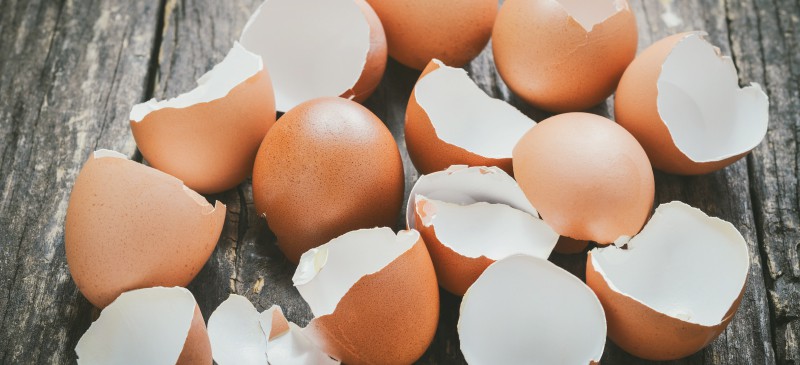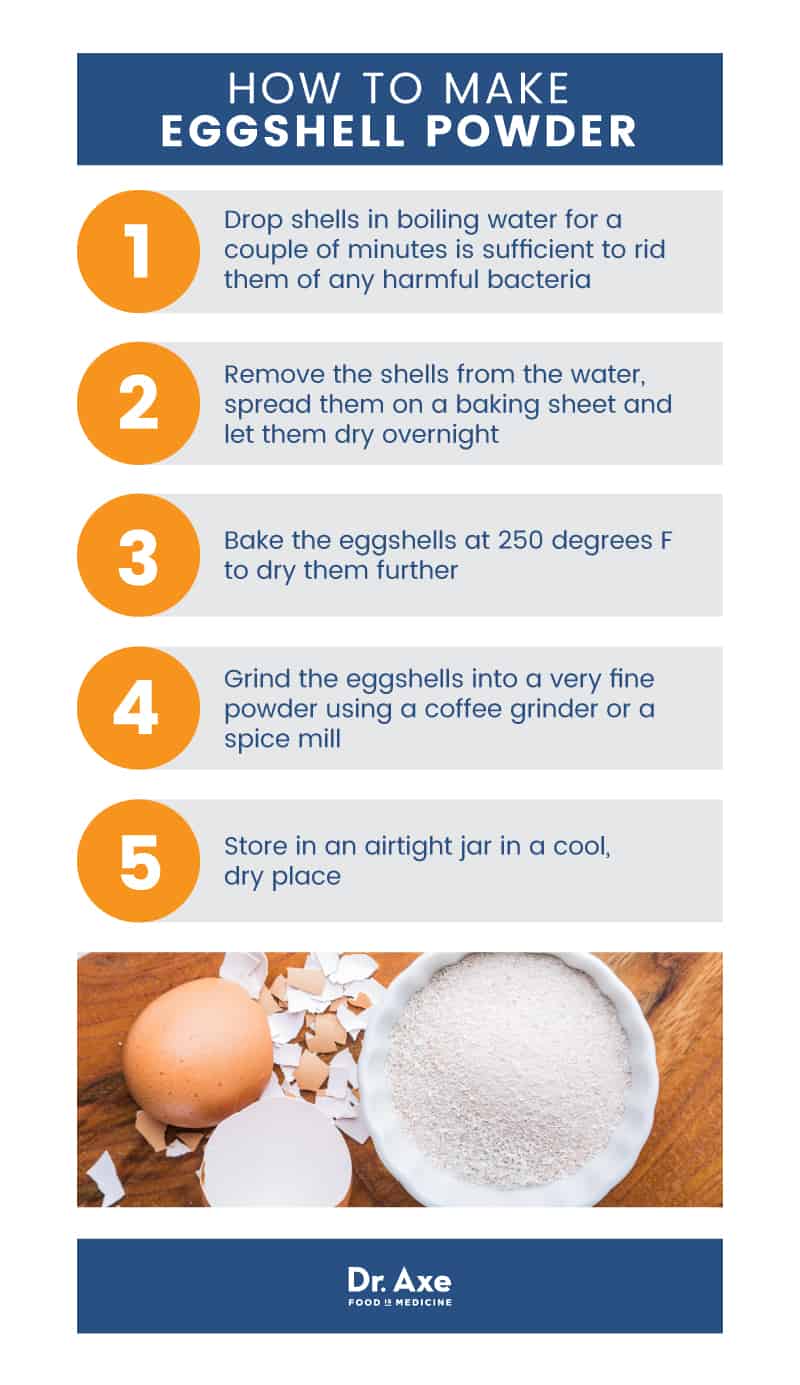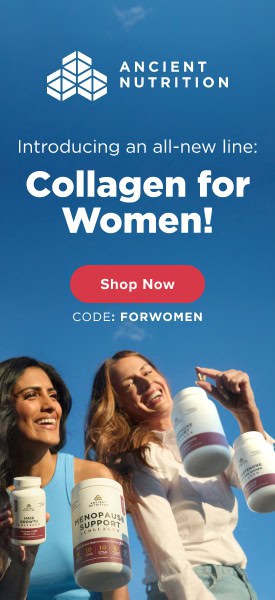This Dr. Axe content is medically reviewed or fact checked to ensure factually accurate information.
With strict editorial sourcing guidelines, we only link to academic research institutions, reputable media sites and, when research is available, medically peer-reviewed studies. Note that the numbers in parentheses (1, 2, etc.) are clickable links to these studies.
The information in our articles is NOT intended to replace a one-on-one relationship with a qualified health care professional and is not intended as medical advice.
This article is based on scientific evidence, written by experts and fact checked by our trained editorial staff. Note that the numbers in parentheses (1, 2, etc.) are clickable links to medically peer-reviewed studies.
Our team includes licensed nutritionists and dietitians, certified health education specialists, as well as certified strength and conditioning specialists, personal trainers and corrective exercise specialists. Our team aims to be not only thorough with its research, but also objective and unbiased.
The information in our articles is NOT intended to replace a one-on-one relationship with a qualified health care professional and is not intended as medical advice.
Can You Eat an Eggshell? Surprising Benefits & Uses of Eggshells
January 29, 2018

For years we’ve heard about the health benefits of eating eggs. Eggs are a cheap, versatile source of protein, and we’ve scrambled, poached, baked and whipped them into everything from soups to custards. But what about the eggshell?
Studies suggest that we may be missing out on a valuable source of calcium when we toss out eggshells. In addition to the nutritional benefits eggshells provide, we’ve found a variety of uses for them, both in the garden and around the home. So can you eat an eggshell? It’s a common question regarding eggs, up there with are eggs dairy?
Here are the surprising things you should know about eggshell nutrition.
What Is an Eggshell Exactly?
We’ve all seen eggshells before, but how many of us really know what we’re cracking?
What we think of as the eggshell is actually three distinct layers. The first layer is the hard, chalky substance we pluck out of batter and omelets. That layer is composed almost entirely of calcium carbonate crystals. (1) These crystals form the curvature that gives the eggshell its shape. Although the eggshell is hard, it is actually a semi-permeable membrane, allowing air and moisture to pass through the almost 17,000 tiny pores which cover its surface. The shell also has a very fine, outermost coating called the bloom or cuticle. The bloom serves as a screen, preventing dust and bacteria from passing through the pores and damaging the rest of the egg.
The other two layers of the eggshell are called the inner and outer membranes. These smooth, transparent membranes are composed of proteins and are both flexible and strong. Working together, the inner and outer membranes defend the egg yolk against bacterial invasion. One of the proteins that make up these layers is keratin, the same protein found in rhinoceros horn and human hair.
Can You Eat Eggshells? Eggshell Benefits
The short answer to this is, “yes.” When thoroughly cleaned and properly prepared, eggshells are edible. The bigger question might be, “Why would I WANT to eat eggshells?” To answer that, we have to look at the amount of calcium contained in an eggshell, which provide a large portion of eggshell benefits.
1. Loaded with Calcium
One average eggshell can provide twice the daily-recommended allowance of calcium for an adult, making it one of the best calcium-rich foods around. (2) Calcium is an essential mineral for the growth and development of new bones. It also helps regulate heart rhythm, promote muscle function, and control levels of magnesium, phosphorous and potassium in the blood. (3)
When we take into consideration the prevalence of calcium deficiency in the average diet, eggshells are clearly a cheap and readily available calcium source. In fact, some studies indicate that calcium derived from eggshells may be more beneficial than the same amounts derived from calcium supplements, since the body processes the food-based eggshell calcium more slowly, thus reducing the risks involved in calcium overconsumption. (4)
2. Strengthens Bones and May Help Treat Osteoporosis
The advantages of eggshell calcium have begun to come to the attention of scientists working on the treatment of osteoporosis. These findings show that the additional calcium, strontium and fluorine provided by eggshells positively affect bone metabolism and stimulate cartilage growth.
Clinical studies in postmenopausal women also indicate that eggshell powder can reduce the pain associated with osteoporosis and increase the mobility of the patients. These same studies form a connection between the eggshell powder treatment and an arrest of bone degeneration or, in some cases, an increase in overall bone density. (5)
Other researchers are experimenting with the use of eggshell proteins as a natural calcium carbonate source for bone graft materials. (6) By combining the eggshell proteins with a substance called hyaluronan, scientists are revealing improved forms of bone generation and tissue engineering. These efforts promise a less expensive and readily bioavailable source of calcium to be used for bone replacement.
3. Protect Tooth Enamel
Chicken eggshell powder is also a key component to dental studies focusing on the remineralization of the enamel in teeth. In research published in the Journal of Clinical & Diagnostic Research, eggshell powder was mixed into a glycerin solution or methylcellulose gel and applied to teeth that had been chemically demineralized. The results showed an increase in new enamel to these damaged teeth. This study also determined that in comparison to other natural calcium sources, chicken eggshell powder contained lower levels of toxic materials, such as lead, aluminum, cadmium and mercury. (7)
In addition, eggshells can be used in the production of Wollastonite, a material used in the synthesis of bioactive materials like dental root prosthetics. These benefits combined help make the eggshell one of the best foods for teeth.
4. Possess Anti-Inflammatory Effects
The powdered outer shells aren’t the only components of eggshells proving to have useful medical applications. One study gauged the effectiveness of using eggshell membranes as an alternative therapy for joint connective tissue disorders, such as arthritis, lupus, gout and back pain. These conditions are commonly treated with analgesics or anti-inflammatory drugs, which have limited effectiveness and can create cardiac risks and gastrointestinal issues.
In contrast, the eggshell membrane proved to relieve the pain and discomfort associated with joint connective tissue disorder without these complicating side effects. (8)

Additional Eggshell Uses
Aside from their nutritional benefits and medical applications, eggshells have a wide variety of uses, both in the garden and around the home. (9)
1. Compost Your Eggshells
It perhaps goes without saying that eggshells can make a valuable addition to your DIY compost. The calcium and other minerals break down into the soil, providing rich nutrients for your future garden. Crushing the shells beforehand hastens their decomposition.
2. Boil Eggshells in Your Coffee
The alkaline nature of the eggshells balances out the coffee’s acidity, resulting in a smoother, mellower flavor without coffee’s bitterness. Simply rinse the uncooked shells with hot water, then crush them by hand and add them to the grounds during the brewing process. One egg will be enough for a small pot of four servings. Use two eggs for the more standard six- to 12-serving pots.
3. Add Eggshells to Your Dish Soap
Crushed shells can give your standard dish soap extra abrasiveness without all the toxins found in chemical-based soaps. Simply place a pinch or two of the crushed shells in with the soap as you wash. The eggshells are especially good at cleaning hard-to-reach spots like the narrow necks of thermoses and vases. Fill the vase halfway with hot water, add the eggshell-soap combination, cover and shake vigorously.
4. Create Your Own Eggshell Face Mask
Crush a clean eggshell with a mortar and pestle. Whisk the crushed eggshell into the egg white, and then apply the mixture to your face, avoiding the eyes. Let the mask dry before removing. The proteins in the egg whites and shells combine to tighten and rejuvenate your skin thanks to the skin-healing benefits of egg collagen.
5. Sprinkle Eggshells Directly into Your Garden Soil
Certain plants like tomatoes, eggplant and peppers love the extra calcium eggshells provide. Simply crush the shells and work them into the soil around the base of the plants every two weeks. Rose bushes and apple trees are other calcium lovers.
6. Use Eggshells to Deter Garden Pests
Soft-bodied pests like slugs, snails and cutworms will avoid crawling over the jagged edges of the shells. This same effect will dissuade any cats who want to you use your garden as a litter box. And the smell of the eggs will deter any browsing deer.
7. Start Seedlings in Eggshells
Carefully cracked eggshells can provide a perfect environment for small vegetable and herb seedlings. All you have to do is rinse the shells, place them back in the carton and fill them with good-quality potting soil. Once you have deposited your seeds into the shells, place the carton on a sunny windowsill and mist the seedlings every couple of days.
After the seedlings have emerged and developed their first mature leaves, they are ready to be transplanted into a larger pot or into your garden. Break off the bottom portion of the eggshell and plant the whole seedling, shell and all.
8. Add Finely Crushed Eggshells to Dog or Bird Food
The same calcium boost that humans derive from eggshells can benefit our furry and feathered friends. Eggshell consumption can result in healthier teeth, nails and coat in dogs, and the extra calcium can help birds lay stronger eggs.
Eggshell Recipes
With all the nutritional benefits eggshells provide, you may be tempted to start munching on them right away. The best way to get your eggshell fix is in powder form. To make your own eggshell powder, gather a dozen empty eggshells, and follow these simple instructions:
- Before consuming eggshells, it is important to clean and sterilize them to remove the risk of salmonella or other bacterial infections. Dropping the shells in boiling water for a couple of minutes is sufficient to rid them of any harmful bacteria.
- Remove the shells from the water, spread them on a baking sheet and let them dry overnight.
- Bake the eggshells at 250 degrees F to dry them further.
- Grind the eggshells into a very fine powder using a coffee grinder or a spice mill.
- Eggshell powder can be stored in an airtight jar in a cool, dry place. Refrigeration is not necessary.
Once you have your eggshell powder, you can add it to a variety of foods. Recommendations include yogurt, smoothies or nut butters. Although a slight gritty texture may result in some foods, it is virtually undetectable when added to baked goods or other heavier dishes. A half a teaspoon of eggshell powder per day supplies 400–500 milligrams of additional bioavailable calcium. (10)

History
- Before the evolutionary development of the “mineralized,” or hard, eggshell, prehistoric egg-layers, such as birds and reptiles, depended on the presence of water to protect and hydrate their eggs. The advent of the shell broke this dependency, allowing them to thrive in new habitats and become fully terrestrial animals. (11)
- Domestication of chickens dates back some 7,00 to 10,00 years, but the first chickens were likely kept for cockfighting, not as a food source. (12)
- The same calcium carbonate found in eggshells is the main ingredient some antacids.
- Although eggshells are fragile, they have a very high compression strength. You can test this by placing an uncracked egg into the palm of your hand and squeezing. In all likelihood, you will not be able to crack the egg this way. In fact, when properly set up, eggshells can withstand the compression weight of a small person. (13)
Eggshell Precautions
There are very few risks or side effects associated with eggshell consumption provided the eggshells are prepared properly. If the eggshells are not crushed finely enough, the jagged bits of shell could irritate the throat and cause damage to the esophagus. Likewise, if the shells are not sterilized, they could harbor salmonella bacteria.
The increase in calcium provided by the eggshells could result in an overabundance of calcium. Too much calcium in the body can manifest in nausea, vomiting, fatigue, irregular heartbeat and low blood pressure. It may also produce kidney stones. These symptoms are less likely to occur from food-based calcium sources like eggshell, however, because the body processes food-based calcium more slowly.
Final Thoughts on the Eggshell
Though we often overlook the eggshell as a food source, the high quantity of quality calcium contained in each shell ought to be enough to make us reconsider its place at the table. Eggshells and eggshell membranes are also being used in a wide range of medical applications beyond simple nutrition.
Doctors and researchers are using eggshell powder and eggshell membrane to treat a host of conditions, including osteoporosis, arthritis and loss of dental enamel.
Furthermore, eggshells are incredible useful and versatile around the home, providing added benefits to your garden, your pet food, your dish soap and your coffee pot. So the next time you crack open an egg, think twice before tossing that shell.



